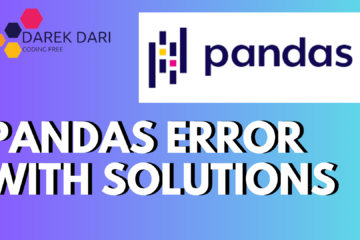
Table of Contents
Hey there lets delve into the realm of DevOps and see how its shaping up, in the year 2024.
Introduction
What is DevOps about?
DevOps goes beyond being a term – it represents a cultural shift that brings developers and IT professionals together for a smoother journey. In 2024 it has become a game changer in the world of software development.
Why does it matter now?
In todays tech world, fast and reliable software delivery is crucial. DevOps serves as the ingredient that enables businesses to become agile and effectively handle changes, customer requirements and intense competition.
Stay updated stay sharp
In a evolving world staying abreast of the DevOps trends is akin to possessing superpowers. It involves embracing tools and practices to enhance productivity and streamline workflows.
Historical Overview
The origins of DevOps
Think of DevOps as the result of collaboration, between development and operations teams. Its journey commenced with the methodology, which emphasizes improvement and iterative development.
Milestones, on the Journey
The journey of DevOps has been marked by events, such as Continuous Integration (CI) Continuous Deployment (CD) the introduction of Dockers containerization and the emergence of infrastructure as code (IaC).
Revolutionizing Software Development
DevOps has brought about changes by emphasizing collaboration accelerating deployment processes and reducing lead times. It has acted as a catalyst, for innovation enabling organizations to deliver software.
Current State of DevOps
Foundations
DevOps is a fusion of collaboration, automation, continuous integration, continuous delivery and continuous monitoring. It’s, like assembling a team of superheroes to develop and deploy software.
Essential Tools
The DevOps toolkit boasts a range of resources – Git for version control Jenkins for automation Docker for containers and Kubernetes for orchestration. These tools ensure the efficiency and reliability of DevOps practices.
Universal Adoption
DevOps is not limited to organizations; it is inclusive for all. Startups and industry giants alike are embracing DevOps as they recognize its ability to accelerate development processes, foster collaboration and deliver experiences to customers.
Emerging Trends in 2024
Automation Takes Center Stage with AI Integration
In the year 2024 the combination of automation and artificial intelligence (AI) takes precedence. Automation handles tasks while AI brings decision making capabilities, into play – an amalgamation that enhances efficiency while reducing efforts.
Security Assumes Prominence
Given the increasing sophistication of cyber threats security holds importance in the realm of DevOps. The focus lies in integrating security measures into the development pipeline to ensure applications can withstand cyber attacks and safeguard sensitive data effectively.
Hey there have you heard about Microservices Architecture? It’s the trend, in town allowing organizations to create scalable systems. It’s all about splitting applications, into self sufficient services to achieve optimal agility.
Best Practices
Continuous Integration and Continuous Deployment (CI/CD) – The Ultimate Combination
CI/CD practices are the duo of DevOps guaranteeing dependable software updates. Automated testing, thorough code reviews and ongoing monitoring make this combination truly unbeatable.
Teamwork is what makes the dream a reality
DevOps success is built on effective collaboration and communication among developers, operations, and everyone in between. A collaborative culture is formed by shared goals, clear communication, and collaborative teams.
Monitoring and Feedback Loops
Continuous monitoring and feedback loops are akin to having a team of superheroes on standby. They aid in the rapid identification and resolution of issues by monitoring everything from application performance to user experience and infrastructure.
Challenges in DevOps
It Is Difficult to Grow
Making DevOps practices evolve alongside organizations is difficult. It all comes down to meticulous planning and the selection of scalable infrastructure and tools.
Warning: Cultural Shift
It can be difficult to transition to a DevOps culture. Overcoming change resistance and cultivating a culture of collaboration and improvement are essential components of a successful DevOps journey.
The Trade-Off Between Speed and Security
Balancing speed and security is a fine line to walk in DevOps. To address security concerns without impeding development, a proactive approach to security is required.
Does DevOps require coding?
Certainly! DevOps frequently involves coding for various tasks like automation, scripting, and infrastructure as code.
What is the DevOps job role?
The role of a DevOps professional is to connect development and operations, emphasizing on automation, collaboration, and enhancing the software development lifecycle.
Example of a DevOps tool?
Certainly! Jenkins is a widely used DevOps tool for continuous integration and continuous delivery.
DevOps salary?
The salary for DevOps professionals can vary depending on their experience and location. On average, it can range from $90,000 to $130,000 per year.
Is Python used in DevOps?
Yes, Python is widely used in DevOps for scripting, automation, and performing various tasks.
Is C++ required for DevOps?
C++ is not usually a requirement for DevOps roles. Proficiency in scripting languages like Python and familiarity with automation tools are more commonly sought after skills.
Overcoming Challenges
Scalable Solutions to the Rescue
To tackle scalability issues, organizations can invest in scalable infrastructure, lean on cloud-based solutions, and use automated scaling. It’s about making sure DevOps practices can handle the growing demands of the business.
Cultural Shift Strategies
Getting everyone on board with the DevOps mindset involves training, communication, and leadership support. Mentorship programs, training sessions, and incentives can help build a culture of collaboration and continuous improvement.
Security Measures from Day One
Building security into the development pipeline from the get-go is a must. Automated security testing, regular audits, and proactive security measures ensure applications stay secure without hitting the brakes on development speed.
Learn more
Case Studies
Illustrative Examples
Examining case studies of successful DevOps implementations provides valuable insights into effective strategies. Renowned companies such as Amazon, Netflix, and Google have demonstrated the significant impact of DevOps.
Gaining Knowledge from Practical Experiences
By analyzing both triumphs and setbacks, organizations can learn from past experiences and avoid common pitfalls. This approach emphasizes continuous improvement and draws lessons from real-world scenarios.
The Practical Application of DevOps
Real-life instances highlight that DevOps is not merely a theoretical concept but a driving force in various industries, including e-commerce and healthcare. Organizations are leveraging DevOps to foster innovation and deliver exceptional value to their customers.
Future Prospects
What’s Next in 2025?
As we look towards the future of DevOps in 2025, it becomes clear that predicting what lies ahead is no easy task. However, there are several trends and innovations on the horizon that we can anticipate. These include a greater emphasis on automation, a more profound integration of artificial intelligence, and fresh strategies to tackle security challenges.
Constantly evolving, technology never rests, and neither does DevOps. Staying vigilant about emerging technologies and advancements in the industry allows organizations to stay ahead of the game.
Prepared for the Unknown
Being prepared is key to overcoming challenges. Whether it’s tackling new security risks, addressing scalability concerns, or navigating cultural barriers, readiness guarantees a seamless DevOps expedition.
Conclusion
Recap of the DevOps Journey
The DevOps journey has had a profound impact on software development. From its beginnings to the present and beyond, DevOps continues to shape how organizations deliver software.
Embrace Change to Thrive
Keeping up with DevOps trends is not just a recommendation – it’s essential. Adapting to new tools, practices, and trends is crucial for organizations to stay competitive and agile in the ever-changing tech landscape.
Never Stop Learning, Keep Growing
DevOps is a never-ending journey. Continuous learning, adapting, and improving are the keys to achieving DevOps success. Embracing a mindset of constant learning ensures that organizations remain at the forefront of innovation.




0 Comments